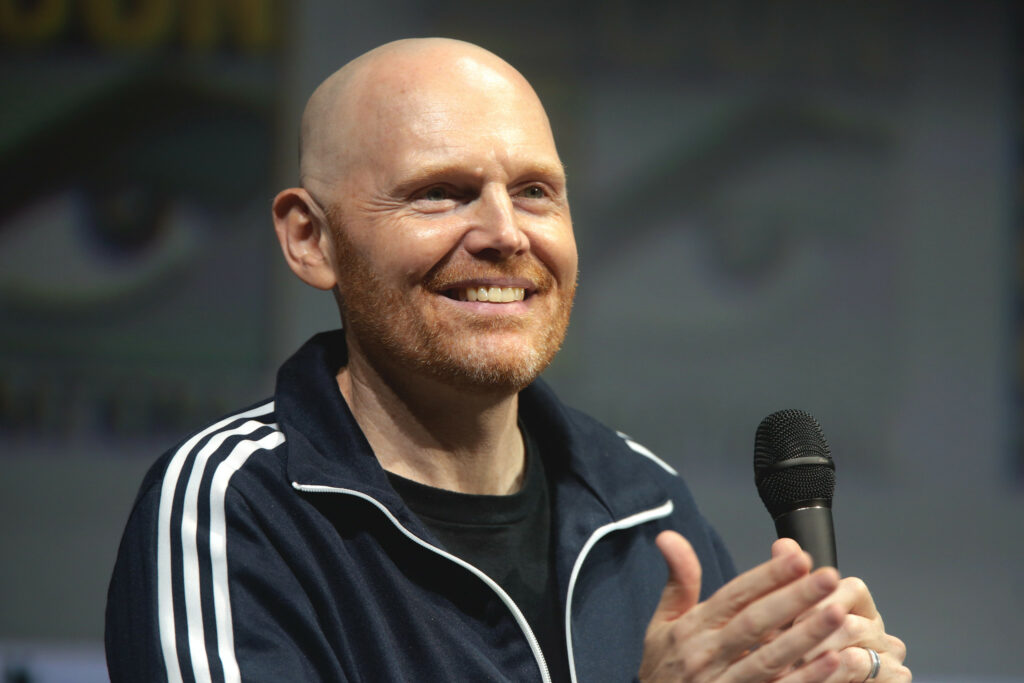Comedian Bill Burr has stirred up controversy by likening United Healthcare’s CEO, Brian Thompson, to a “gangster” while speculating on the potential motives behind the executive’s assassination.
Thompson, who was 50 and in Manhattan to attend UnitedHealthcare’s Investor Day conference last week, was killed by a masked shooter outside the Hilton early in the morning.
Burr, 56, began by extended his condolences to Thompson’s family but admitted his perspective shifted once he explored the circumstances tied to the CEO’s professional life.
Reflecting on the media coverage, Burr quipped, “I was sitting there reading an article, and a guy was like, ‘Oh my god, he’s such a great guy; he had a wife and kids, and he’s such a great guy.'”
Comedian Bill Burr comments on slain CEO Brian Thompson: "I was sitting there reading an article, and a guy was like, 'Oh my god, he's such a great guy; he had a wife and kids, and he's such a great guy.' And then you find out, he and the other guys he's working for are getting… pic.twitter.com/EY6ve0y8vj
— Ken Klippenstein (@kenklippenstein) December 8, 2024
But things took an unexpected turn when Burr learned about legal allegations against Thompson.
“And then you find out, he and the other guys he’s working for are getting sued for $121 million for dumping a stock, and not letting the other people know,” Burr remarked.
He was blunt in his assessment of corporate ethics, declaring, “It’s like there’s your motive. They’re gangsters, dude. And then one of them gets whacked, [and] they’re like, I was good, he was such a good guy. It’s a dirty game.”
Like a true Italian, Luigi Mangione's fatal error as an assassin was giving himself away by stopping to flirt with the cashier at the cafe before going to work pic.twitter.com/NGKSpBQAAv
— Lee (Greater) (@shortmagsmle) December 9, 2024
The lawsuit in question accuses Thompson and other higher-ups of selling company shares before disclosing information that caused stock values to sink, leaving other stakeholders at a severe disadvantage.
Thompson had been the CEO of UnitedHealthcare, a subsidiary of UnitedHealth Group, since 2021 and had established himself as a prominent figure in the healthcare sector, before he was gunned down by an assassin.
After an intense manhunt spanning several days, authorities apprehended 26-year-old Luigi Mangione on Monday.
New mugshots of Luigi Mangione. (via Fox News Digital) pic.twitter.com/YHKmux7DPi
— Pop Base (@PopBase) December 10, 2024
Mangione was captured at a McDonald’s in Altoona, Pennsylvania, after an employee spotted him and alerted law enforcement.
Pennsylvania State Police Lieutenant Colonel George Bivens shared that upon Mangione’s arrest, officers discovered a staggering $8,000 in cash, $2,000 in foreign currency, as well as bags created to block cell phone signals.
Alongside these items, police reportedly found a ghost gun, suppressor, and forged identification documents.
The dramatic arrest unfolded when Mangione was asked to lower his mask, at which point investigators recognized him immediately.
When questioned about his recent presence in New York City, Mangione fell silent and began trembling, police noted in their criminal complaint.
He allegedly denied knowledge of the confiscated cash and suggested it may have been planted.
Mangione also dismissed claims of “criminal sophistication,” contending that the bag recovered from him served a purely waterproof purpose.
Prosecutors in Manhattan moved quickly, filing second-degree murder charges and other counts against Mangione, according to reports from the Associated Press and the New York Times.
Mangione remains in custody in Pennsylvania, where additional charges include possession of an unlicensed firearm, forgery, and providing false ID to law enforcement.
Notably, investigators also recovered a handwritten, three-page document believed to be Mangione’s manifesto.
According to the Associated Press, excerpts of the note claim Mangione acted alone, with one line reading,
“To the feds, I’ll keep this short, because I do respect what you do for our country. To save you a lengthy investigation, I state plainly that I wasn’t working with anyone.”
Another line allegedly found in the document states, “I do apologize for any strife or traumas, but it had to be done. Frankly, these parasites simply had it coming.”
The New York Times reported that the 262-word manifesto condemned companies like UnitedHealthcare for their alleged exploitation.
One passage directly criticized the disparity between the company’s booming market growth and the stagnation of American life expectancy, accusing corporations of abusing the nation for profit while facing zero accountability.
While many left-leaning critics have cheered Thompson’s death, citing frustrations with U.S. healthcare inequities and corporate greed, Burr expressed disdain for this reaction but added a provocative take on public sentiment.
“You know what’s annoying me about this kid who killed this CEO?” Burr asked during an episode of his podcast, “Bill Burr’s Monday Morning Podcast.”
He pointed out the “staggering lack of empathy” from the public, attributing it to frustrations over the way health insurance companies handle claims in times of vulnerability.
“None of these news programs are talking about the incredible lack of empathy from the general public about this because of how these insurance companies treat people when they at their most vulnerable, after we’ve all given them our money every f**king month, and now we finally need you and all you do is deny us,” Burr complained.
Burr voiced support for the fear now rippling through executive boardrooms, noting that insurance companies are taking photos of their CEOs off of company websites.
“You know, I gotta be honest with you, okay? I love that these CEOs are f**king afraid right now,” Burr stated. “You should be! By and large, you’re all a bunch of selfish, greedy f**king pieces of s**t.”
He didn’t mince words as he took aim at corporate practices, labeling many CEOs as “mass murderers” and accusing them of operating with clean hands in theory but destructive outcomes in reality.
“You just don’t pull the trigger, and that’s why it looks clean,” Burr added. “That’s why these people look—’Oh my god, he was just, you know, walking into a hotel.’ It’s like, okay, well, what was his job? What did he do? What were the results of it?”
Watch Burr’s podcast here:

